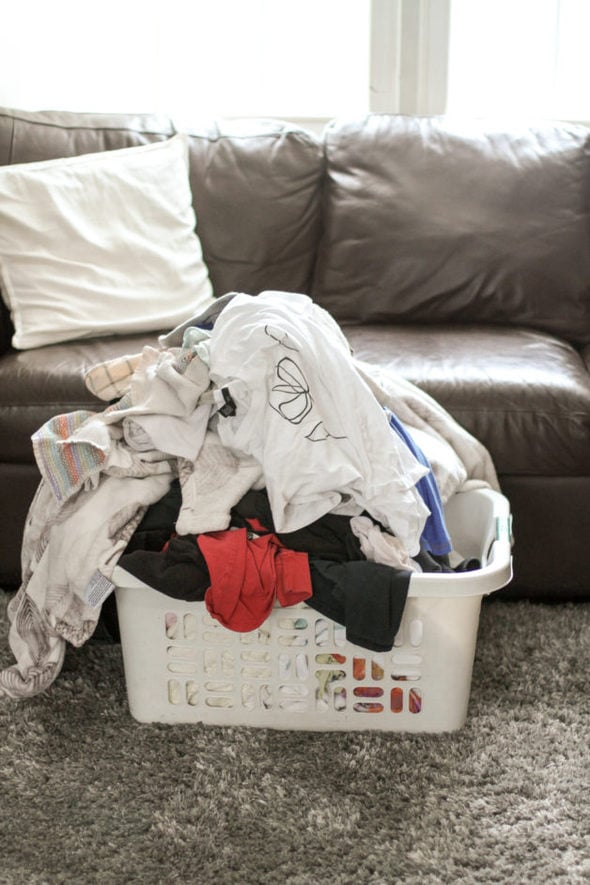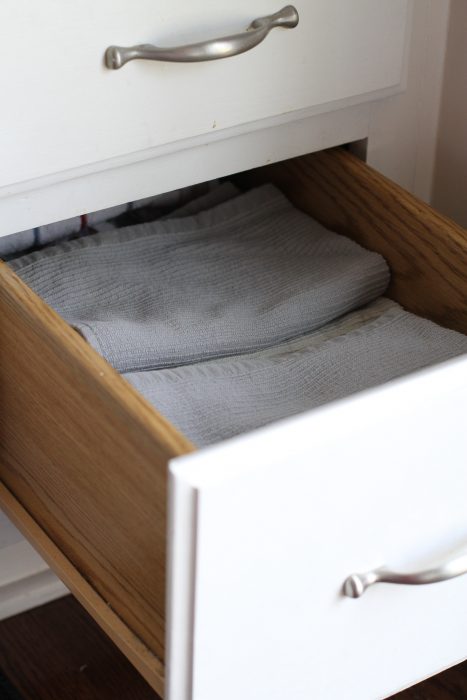A little while back, a reader asked if my kids feel about my food-waste avoidance efforts; do they think it’s dumb? Are they as enthusiastic about avoiding food waste as I am?

The answer?
They don’t think my efforts are dumb.
And at the same time, here’s what is true:
No one in my house cares quite as much about food waste as I do.
So, this means that the bulk of the food waste fighting efforts at this house fall on my shoulders. I care the most about this, so it stands to reason that I will put forth the most effort.
Mr. FG and the girls do things like saving and reheating leftovers, of course.
And no one complains about eating banana muffins or overnight French toast or croutons or any of the other things I make to use up odds and ends.

But the actual putting together of random meal concoctions, planning how to use up freezer contents, reorganizing the fridge/pantry to highlight what needs to be eaten…that’s my territory.

One of my food-waste fighting lunches, using leftover mashed potatoes, a leftover sausage, and the last avocado.
And I am the one who will eat the last bit of cereal, the heel on the loaf of bread, the leftovers no one else wants, and so on.

I am always willing to finish up the Nutella.
I suppose I could get mad about this and indulge in a dramatic victim mindset: “Why am I the only one who care about food waste?”
<falls dramatically onto the chaise lounge>
(I do not, in fact, own a chaise lounge.)

The thing is, Mr. FG and the girls participate in the fight against food waste at a rather normal-person level, and that’s fine.
I don’t really think it’s reasonable to expect them to care as much or expend as much energy on this as I do.
If you care the most about something, you need to initiate/lead/work the most
This is true for pretty much any area of life.
While it is reasonable to expect spouses and children to go along/participate to a degree, the person who has the highest level of passion for something cannot expect everyone else to have that same level of passion.
If you are the person in the household who values adventure the most, you are going to have to initiate that the most.
If you are the person in the household who values a super clean house the most, you are going to have to work the hardest at that.
(No one else is going to notice the dust behind the bathroom door.)

If you are the person who values variety in restaurants, you will probably need to do the work of researching and choosing new ones.
If you are the person who cares about a meticulous lawn the most, you will have to take care of it the most.
If you are the person who values saving money the most, you can expect the family to stick with the budget, but you are probably going to be on your own when it comes to more extreme, high-effort money saving tactics.
How can I get my spouse/kids to care about this like I do?
You can’t.
And they can’t make you care as much as they do about other things!
But I do think that you can:
Expect what is fair
As I mentioned above, I do think it’s reasonable to expect some average level of participation from household members.
For instance, people need to do their laundry and clean up after themselves. But if you can’t rest until the brass is polished and all the ceiling fans are dusted every week, well, you probably need to handle those chores.

And in the financial realm, spouses need to stick to agreed-upon spending and saving guidelines.
But if you want to mend your joggers until they fall apart (hi! it’s me!) or you think it’s important to use every last bit of the toothpaste tube (also me), you’re going to be happier if you just make peace with the fact that you might be the only one doing those things.
So then you can just finish up the last bit of the toothpaste tube while your spouse starts the brand new one.
Be respectful of things that are just differences
It’s easy for a super-clean person to think of someone else as a slob (and for that other person to think of the super-clean person as a clean freak!)

It’s also easy for a saver to think of the other person as a profligate spender. And the spender can look at the saver as a tight-fisted miser.
But these types of preferences are usually just neutral differences, not problematic extremes, and seeing them as differences encourages kindness toward others.
(Obviously, problematic extremes need to be addressed. I’m just saying that a lot of differences are not problematic extremes!)
Readers, I’d love to hear your thoughts on this. Agree? Disagree? How do you see this play out in your life?
P.S. As I was writing this post, I thought about how when I was a pre-teen, I wished we had more homemade bread in the house. So, I started baking bread. Problem fixed! I cared the most about eating homemade bread, so it fell to me to make it happen.

Amy
Saturday 15th of May 2021
I can totally relate with this post! As a child, my parents both worked full time so I learned at an early age (latchkey kid) to do all things in the household. I watched my younger brother, prepped dinner and homework. I would have LOVED my mom or dad being around more to cook together. So when I had kids, I decided they would have that. My kids joke a lot to my husband and me about my frugal ways of running the house but I know in my heart that they get it because I start to see them do the same things in their lives now that they are teens. My daughter has a fierce love of buying second hand and my sons are always thinking outside the box when it comes to saving and what really matters when they want something. This week was clean out the freezer and pantry and plans meals around that. I hope they see these money saving tricks and use them when they go off on their own.
Jacee
Wednesday 12th of May 2021
Regardless of the "frugal" topic, this entire article contains good advice and a great formula for a happy marriage and happy children.
Thank you for spelling it out.
Kim from Philadelphia
Wednesday 12th of May 2021
I am the more “extreme” of my husband and I. I’m the bread end eater, the Penny pincher, the neat freak. My husband is a good sport about it, though I have to remind myself not to badger him about not being as extreme as I am! ☺️
Madeline
Wednesday 12th of May 2021
Married young, we come from very similar backgrounds: 12 years catholic school,working class folks who had to be frugal. We have always (mostly) somehow been on the same page about all this stuff— money,cleaning, chores, etc. Our activities have divided up along some traditional “gender” roles because that’s what we both like to do.I hate car maintenance, and lo and behold,Ken is really good at it.I LOVE to cook, NOT waste food, and Ken supports my efforts completely. I am not the world’s best housekeeper, so Ken prefers to mop and clean our bathrooms (woo hoo!!) but I dust, do laundry, and clean my kitchen.He does do a lot of dishes too since I cook from scratch a LOT.
Yes, I believe whoever has the greatest urge does the initiation: I like to go out on adventures more,so I plan for them and Ken willingly,happily, comes along. He loves gardening so he spends the most time weeding,etc.
We both have a commitment to frugal ways and not wasting resources.
Overall,I think you nailed this one.
N
Wednesday 12th of May 2021
I’m very much a DO ALL THE THINGS NOW! person, whereas my husband is a “It will get done in the next few days” person. Thus, things with actual deadlines (like bills) fall to me, and while needed but not urgent things (say, sweeping cat hair) fall to him. We’ve traded cooking and cleaning throughout our marriage depending on who was home the most, with the tacit agreement that “Done” is far more more important than “Done *MY* way.” Are the dishes done? Great. Are they done whoever’s preferred way? Who cares—they’re still clean!
By the same note, he’s become neater (while no cleaning fanatic, clothes on the floor drive me batty), and I’ve become a better cook thanks to him and our trading back and forth.